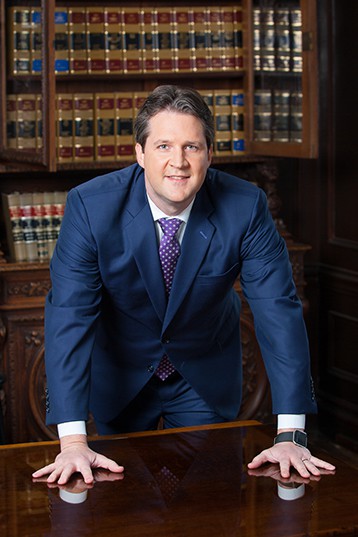Nursing Home Falls are a Deadly Threat to Loved Ones
The decision to put your loved one in a nursing home is an incredibly difficult one to make. Usually, there are many discussions that take place, attempts made to meet the increasing demands of medical visits, personal errands, and physical assistance, and alternatives considered. However, when the decision finally is made, it often involves relief for all parties. As difficult as it is for a son, daughter, or other loved one to care for an aging family member, it is also stressful to be unable to care for oneself and having to rely on others. A nursing home offers a place where staff will attend to all of an aging individual’s needs, but there are serious dangers as well.
Nursing home falls lead to serious injuries, and even death, for many residents. There are many different situations that can lead to a dangerous fall, including spills that do not get cleaned up promptly, equipment left in the hallways, a resident who is left in his or her bed too long who attempts to get out on his own, even poor lighting or broken bulbs can lead to a terrible fall.
According to statistics put together by the Center for Disease Control and Prevention (CDC), fifty to seventy-five percent (50-75%) of nursing home residents fall each year and thirty-five percent (35%) of these falls are experienced by residents who are unable to walk, meaning that they are falling out of chairs and beds and other places where they should be safe and secure. For senior adults who do not live in a nursing home, the fall statistics are about half of the facility statistics. When a fall happens in a nursing home, approximately ten to twenty percent (10-20%) of residents experience serious injuries, including two to six percent (2-6%) who suffer from severe fractures. A fear of falling can lead to residents remaining immobile in the nursing home, experiencing isolation and depression and the loss of motor functions.
There are three main causes of falls within a nursing home:
- Environmental dangers – this includes wet floors, misplaced equipment, loose electrical wiring, improperly adjusted chairs and beds, physical restraints, and exits that are not labeled or not clear;
- Medication errors – The misadministration of drugs or failure to monitor for negative side-effects may lead to patient disorientation, sleepiness, dizziness or loss of motor function, leading to falls; and
- Negligent care – The personal aid transitioning a resident between a bed and a chair may failed to completely settle the patient, improperly set up a walking aid, did not secure a necessary restraint, or did some as simple as left shoes untied when assisting the resident with getting dressed.
In many nursing homes, the staff uses restraints, both physical and chemical, to maintain control over patients. Often, this is done without the proper physician oversight and recommendations, which is in violation of state and federal laws. These restraints frequently lead to falls because someone is trying to get around physical restraints or is under the influence of chemical restraints, often sedatives, and is unable to control his or her physical actions.
The decision to place a loved one in a nursing home is difficult for everyone, including the person moving into the very different environment of a home. The only reason it is possible for everyone to accept the new arrangement is the belief that the nursing home is safe. When you or a loved one is injured in a nursing home fall, it is important to contact the compassionate and experienced Tennessee nursing home attorneys at Bailey & Greer, PLLC as soon as possible in order to gather evidence before it is lost or degraded. Our attorneys understand what you are going through and will work with you to get the justice that you deserve. In order to discuss your situation, please schedule a meeting by calling us at 901-680-9777. At Bailey & Greer, PLLC, we are small enough to care, big enough to fight, and experienced enough to win.

Since graduating magna cum laude in 2005 from the University of Memphis School of Law, Thomas has helped make a difference in the lives of victims of serious personal injury, wrongful death, and professional negligence. Thomas has extensive trial experience in both state and federal court. Among other victories in the courtroom, Thomas obtained several impressive jury verdicts and settlements
Read more about Thomas R. Greer
